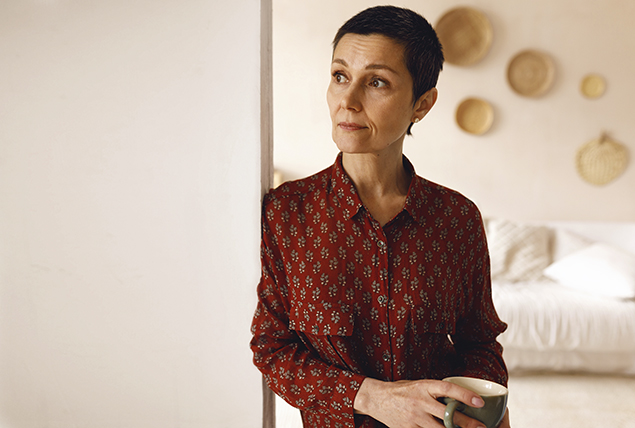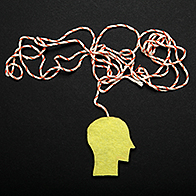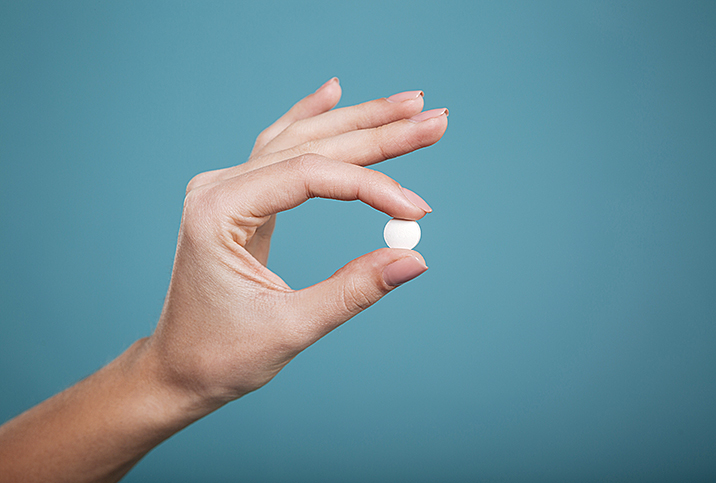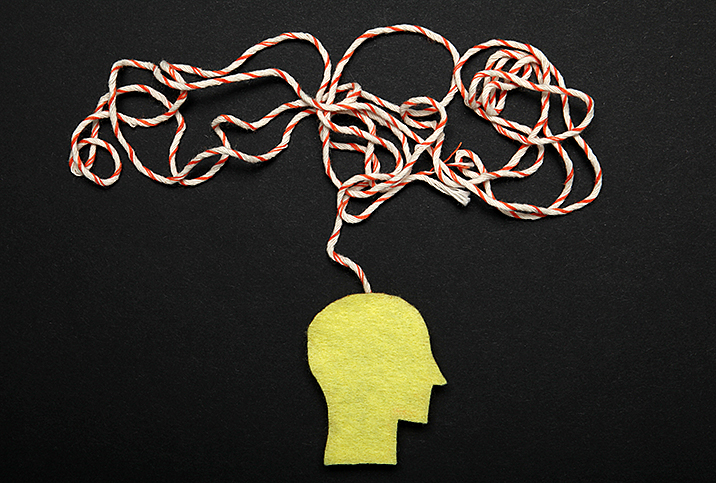Why Is ADHD Inattention in Women Underdiagnosed?

Perimenopause was destroying my life. Outgoing correspondence kept reappearing in the firm's mailroom courier bins, even though I "knew" I sent it already. Learning a new work task always took me forever. This was frightening—and not just because these were legal documents with fee-incurring drop deadlines: My brain was malfunctioning.
My symptoms were caused by conditions such as anxiety and depression, I was told. But when I saw a magazine article, "Is It Menopause or Is It Attention Deficit/Hyperactivity Disorder (ADHD)," desperation stopped me from turning the page.
Clinical psychologists were discovering an increase in menopausal women diagnosed with ADHD, which meant they were overlooked as children. It all clicked.
Living near Washington, D.C., at the time, I scheduled an assessment. I was surprised at my high score, but therapist Carolyn Angelo, L.I.C.S.W., a licensed independent clinical social worker at the Adult ADHD Center of Washington, was not.
She nodded with understanding in our follow-up interview when I told her that when I was 10 I couldn't stop bouncing a tennis ball in the basement after school for hours. I would forget about my homework until my fifth-grade teacher screamed at me the next day.
You mean all this time I wasn't just easily distracted?
I cannot overstate my sense of relief when Angelo said my issues were physiological and didn't stem from moral or intellectual failings—as the world led me to believe. It's one of the many myths about ADHD.
People with ADHD have less activity in their frontal cortex, so they overcompensate. I look at it like a car's idle. When the idle is slow, the car stalls. So I revved my brain electricity with thought distractions and "maladaptive daydreaming" when I was 5 and when I was 45.
"The frontal cortex is considered three years behind in children with ADHD," said Kathleen Nadeau, Ph.D., the founder of the Chesapeake Center for ADHD, Learning and Behavioral Health in Bethesda, Maryland. "The frontal cortex deals with executive functioning, everything that makes you an adult: decision-making, appreciating consequences of actions, planning, inhibiting impulses, completing tasks."
The symptoms of ADHD make it difficult to handle typical adult responsibilities. This is why some of us keep failing at school, work and relationships, even though we try our hardest.
Why do girls get deficient attention?
Nadeau and Patricia Quinn, M.D., the director of the National Center for Girls and Women with ADHD, co-edited "Understanding Women with ADHD" 25 years ago, and found that ADHD diagnostic criteria were based on a male standard. Girls like me fell through the cracks.
"Females and males with ADHD present differently for several reasons," Quinn said. "First, studies have shown that there are several anatomical/structural differences in the brains of females versus males with ADHD. Second, males and females experience differences in sociocultural pressures that affect their behaviors. And third, hormonal fluctuations found in females cause neurobiochemical changes and worsening ADHD symptoms during certain stages."
These anatomical differences explain why ADHD girls tend to be the inattentive ADHD type, staring out the window instead of jumping on their desks, like those with hyperactivity-impulsivity.
Teachers must deal with classroom disruptors first, so boys with inattentive and hyperactive-impulsive behaviors tend to get help, while girls who simply aren't paying attention may not.
Some of these kids excel in high school, only to crash and burn once they reach college or work life, where there is less structure.
Why do I have hot flashes and other menopausal symptoms?
Another reason women with inattentive ADHD often aren't diagnosed is that they are good at masking their symptoms and learning to be people pleasers. This can be exhausting. When menopause is added to the equation, their coping mechanisms no longer work. The ADHD symptoms in women may seem to amplify.
Hormone fluctuations are to blame, according to Quinn.
"The postpartum and menopausal stages affect the release of monoamines (dopamine, serotonin, and norepinephrine) at neuronal synapses," she said. "Estrogen can account for about 20 percent of monoamine release. When estrogen is low, these monoamines decrease, resulting in increased ADHD symptoms."
Estrogen can drop by 65 percent after a person reaches menopause, according to Psychology Today. That decrease contributes to ADHD-like symptoms in neurotypical women. For women who already have ADHD, life can become close to unmanageable.
For me, these symptoms were a blessing in disguise. Otherwise, I would never have known I had ADHD. But according to Nadeau, I was lucky to be diagnosed at all. She had a 31-year-old client who came to her for a second opinion after an assessment by a mental health professional.
"The psychologist, clearly not an expert on ADHD in women, simply gave her multiple questionnaires. And when she reported both anxiety and depression—which is almost universal among women with ADHD—she made the very common error of attributing all of her struggles to anxiety and depression. This occurs because psychologists and psychiatrists receive little to no training in the diagnosis of ADHD in adults, much less in women," Nadeau said.
Hormone replacement therapy (HRT) is being studied for perimenopausal women with ADHD in the Netherlands, Canada and the United Kingdom. The United States is behind on the issue because of exaggerated health risks.
Nadeau will explore this issue and others in an upcoming book, which will also shift focus from white middle-class heterosexual married women to women from other racial and ethnic groups, income levels and sexual orientations.
What are the potential long-term effects of undiagnosed ADHD?
I sometimes hear someone laugh and say, "Oh no, I forgot my purse—I must have ADHD!" I always think, No you don't, or you wouldn't be laughing. The popular image of an ADHD woman is a fun, flighty woman who makes careless mistakes and seems to float through life unscathed. The reality is harsh.
An ADHD woman would have experienced more unemployment, economic instability and even homelessness than neurotypical women—often without the same emotional support, according to a National Institutes of Health (NIH) study.
Researchers used a girls' camp to study ADHD and social relationships. Half of the girls had ADHD; half did not. Girls with the hyperactive type of ADHD were rejected socially because they were perceived as bossy and interruptive. Inattentive-type girls were ignored. This led to low self-esteem for both.
Nadeau said these issues often continue throughout a woman's lifetime. They unintentionally offend other women because they are late or forgetful, or they lose touch with friends because it's so difficult to keep up with daily life, much less remember to call or send messages to people.
Experiencing this and not knowing why is even more difficult. So I'm grateful for women like Sari Solden, a psychotherapist and author in Ann Arbor, Michigan, who focus on helping women heal from the emotional consequences of growing up with undiagnosed ADHD.
ADHD is neurobiological. Solden said it is very important to get treatment, especially for women who were undiagnosed, because they have layers of wounds and shame, hiding, challenges and underachievement. They have all sorts of relationship problems, withdrawal and isolation.
"It is very important to work with a therapist on your distorted self-image. You may only see your negative traits, and therapy can help you develop a more accurate view of yourself that doesn't leave out your core strengths," Solden added.
A brand new day
Finding out I had ADHD was like getting another chance. I can give myself permission to avoid jobs in mailrooms and law offices; I work to my strengths. My chosen ADHD treatment plan is changing my life in other ways. I'm doing several things that are good for me, including:
- Practicing mindfulness
- Doing yoga
- Exercising
- Taking omega oils and vitamins B and D
- Avoiding sugar
Strangely enough, I have found out those friends I always clicked with the most also have ADHD, so we can commiserate. But half my treatment was just being diagnosed. A huge burden was lifted. I feel better about myself.





















Commentary